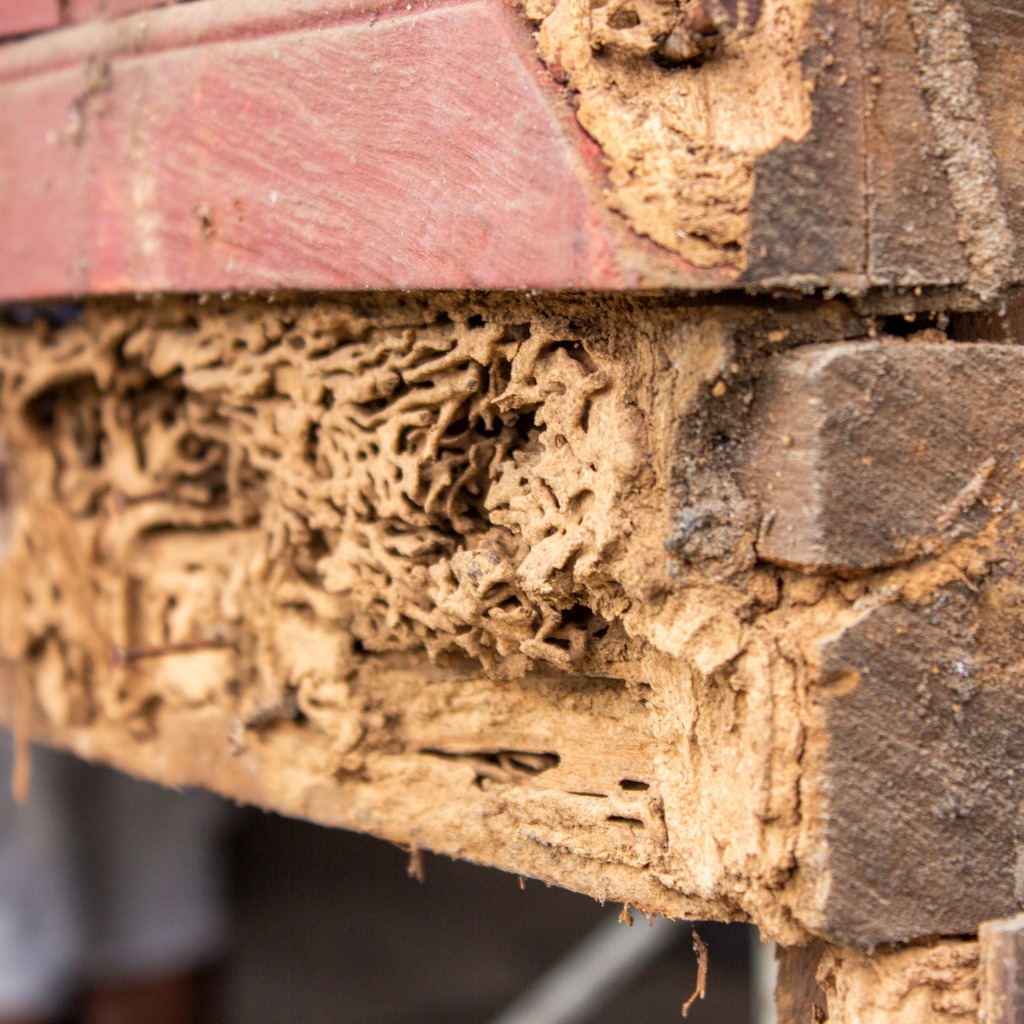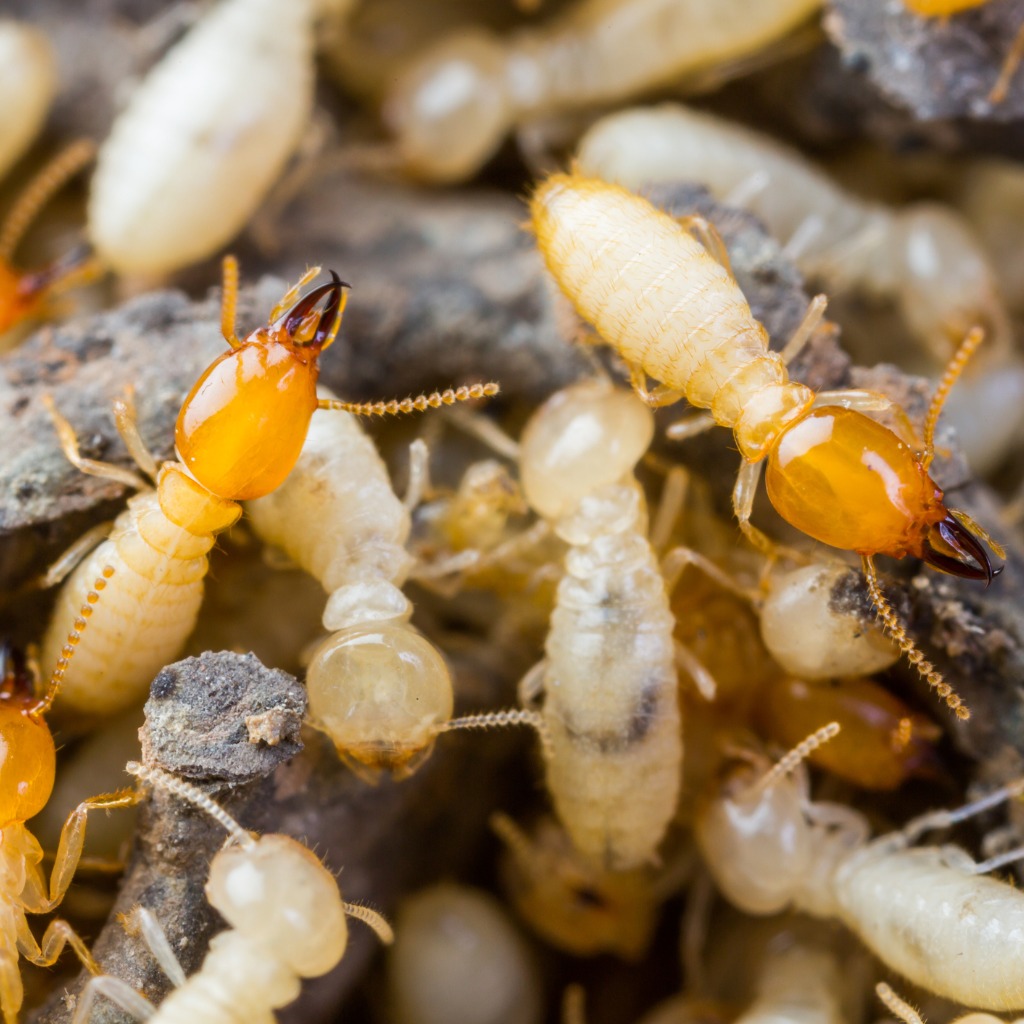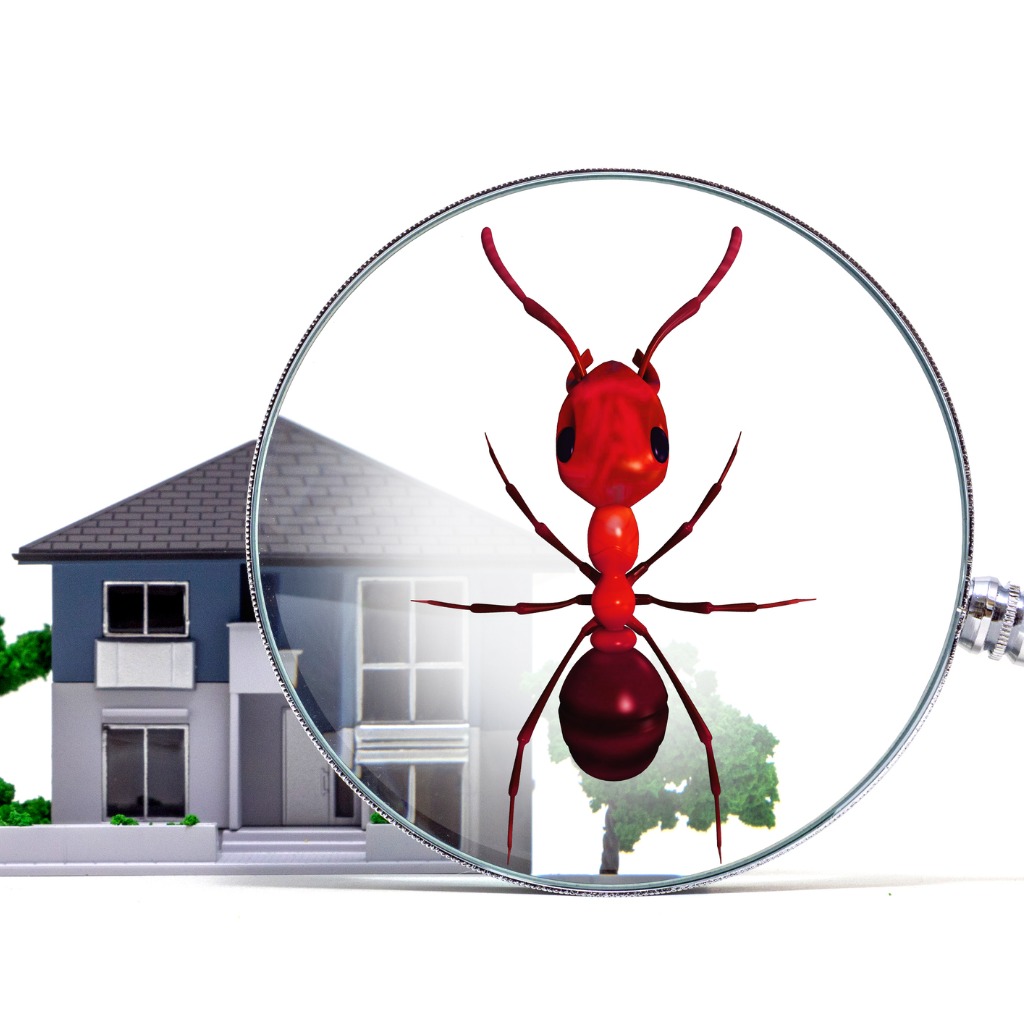Termite Facts
A typical homeowner’s insurance policy does not cover destruction caused by termites,
even though they cause over 1 billion dollars in damage to homes throughout the United States each year.
It’s important that homeowners understand the threat of termites, and take the necessary steps to protect their homes.

Why should you worry?
Subterranean termites are extremely destructive. First they build tunnels to wooden structures, and then they burrow into those structures to obtain food. Any wood or cellulose-containing material constitutes termite food, and given time to do so, they’ll eat until nothing is left but a shell.
How do you know you have a termite problem?
You can’t assume your home is termite-free just because you’ve never seen them – they only swarm once or twice a year, and you might miss it!
You’re more likely to discover you have a termite problem by discovering the evidence they leave behind. If you encounter any of these signs, there’s a good chance termites are invading your home right now:
- Mud tubes built for traveling above ground
- Damaged or hollow-sounding wood
- Pinholes in drywall or wallpaper
- Small piles of sawdust
- Piles of small wings
Of course, it’s possible you’ll miss every one of these signs as well – termites avoid light and air, so they build their colonies where you’re not likely to stumble upon them. The very best way to be sure you don’t have termites is to contact a licensed pest control professional to conduct a thorough inspection of your home.

Is it a termite or an ant?
On the off chance you do see them, remember that it’s easy to confuse termites with ants. Fortunately, there are features that distinguish them.

thick waists
straight antennae
two sets of wings (same size)

narrow waists
bent antennae
two sets of wings
(one wing is longer than the other)

How can I get rid of them?
With normal household pests, you can spray insecticides on them and/or poison their food. None of these methods work with termites – you need to have a trained professional put down a chemical soil treatment that works as a barrier, or Termite Bait Stations which Termites are attracted to and once eaten they become poisoned. Fortunately, it’s a fairly inexpensive treatment. It is certainly much less expensive than letting the termites eat your home!
How Can We Help?
Colony Pest Management, Inc.
-
9301 Avenue L, Brooklyn, NY 11236
-
(718) 859-4449


